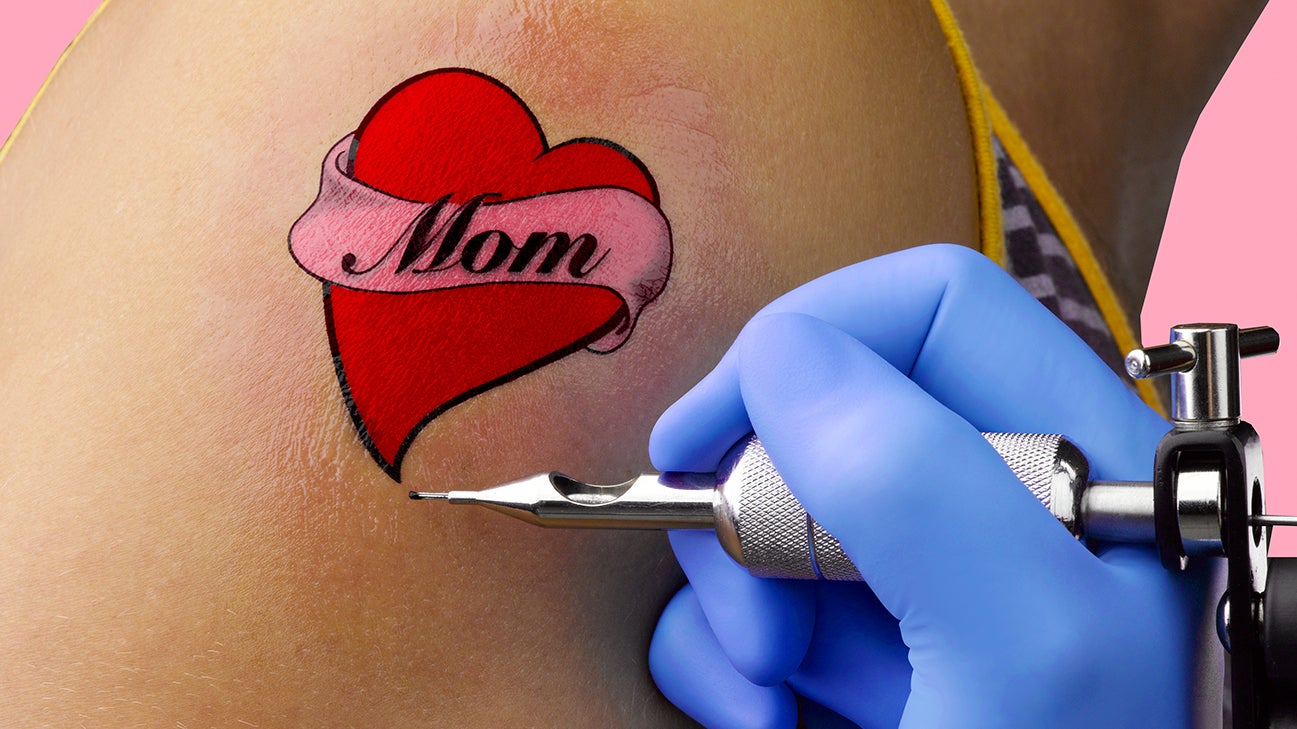Congrats on the new tatt! Stop, drop, and put away that old jar of Vaseline. Here’s what your fresh ink needs to heal beautifully.
Why Vaseline and petroleum-based jelly aren’t great for a new tattoo
Petroleum-based products can cause ink to fade and may trap moisture and bacteria on top of the tattoo, increasing your risk of developing an infection.
Use water-based moisturizers on new tattoos instead.
Petroleum-based ointments like Vaseline are great for helping dry skin, but they aren’t great for tattoo aftercare. Here’s why

Why Vaseline isn’t good for your tattoo
It’s important to know that only anecdotal accounts support the use of products like Vaseline on healing tattoos.
According to a survey of 32 tattoo artists, most tattoo professionals recommend an aftercare routine of washing with antibacterial soap and applying a petroleum-based ointment or unscented lotion, two to three times a day.
One-third of the artists surveyed above said that they recommend petroleum-based products because that’s what they learned to use from other artists or through trial and error.
The American Academy of Dermatology says petroleum-based products can cause ink to fade. They recommend using water-based moisturizers on new tattoos instead.
But why? Products like Vaseline and super thick ointments may trap moisture and bacteria on top of a new tattoo, increasing your risk of developing an infection. Water-based lotions are breathable and won’t suffocate your healing skin.
Symptoms of a tattoo infection
- redness or discoloration
- swelling
- warmth
- discharge
If you think your tattoo could be infected, get medical attention quickly to avoid major damage to your body art.
Tattoo artists and dermatologists usually recommend letting your tattoo “breath.” So, don’t wrap it in a bandage, just wear loose clothing after the initial bandaging at the tattoo studio.
Leave the ointment or plastic wrap combo your tattooist applies on your skin for a few hours or as directed by the artist. We’re not saying to ignore your tattoo artist’s advice for aftercare. They know their stuff, and have seen hundreds of tattoos heal.
In fact, in another survey of 90 New York City tattoo artists, 56.1 percent said they’re trained on the topic of tattoos and skin conditions. The survey also showed that people with more training provide better written aftercare instructions and have higher confidence dealing with tattoo-related skin concerns.
Should you ever put petroleum jelly on a tat?
Your tattoo artist may cover the area with a thick, greasy ointment and wrap it in plastic wrap or a bandage. They will tell you when to remove the bandage and gently wash your tattoo (usually a few hours later).
After that initial wrapping, use an unscented water-based lotion to keep the wound from drying out too fast.
You may still catch a tattoo artist who advises using petroleum jelly as your tattoo heals. If you’re not comfortable taking the risk, ask if they can recommend a water-based product. Ultimately, it’s your skin and your call.
When is it a good idea to use Vaseline on a tattoo? Only after it is completely healed (at least a few months) and if the area is extremely dry.
A solid plan for caring for your tattoo
Following these steps will likely result in a gorgeous, perfectly healed patch of ink:
- Keep it clean, but wash gently. No cloths or scrubbing! Pat gently to dry. Pretend you’re washing a newborn baby.
- Avoid clothing that’s tight or rubs against healing skin.
- Use some kind of breathable moisturizer. Options include products formulated specifically for tattoo healing, a fragrance-free moisturizer with water listed as the first ingredient, like Eucerin, Curel, or Lubriderm, or natural moisturizers like coconut oil, shea butter, or cocoa butter.
- Stay out of the sun, or keep your tattoo covered with loose clothing while it heals. Be diligent about sunscreen to protect your tattoo after it’s fully healed.
- Don’t soak in a tub or go swimming with a healing tattoo.
- If you notice any unusual reaction, call a dermatologist.
Bottom line
Despite the long history of using petroleum-based ointments to protect new tattoos, you should probably avoid them because they block airflow and may increase your risk of developing an infection.
Basically, a tattoo needs to be clean, exposed to air, and moisturized to heal properly. If you trust your tattoo artist to permanently mark you up for life, trust their experience with recommending aftercare.
If you want a little extra piece of mind that comes with certified medical advice, talk with your dermatologist about tattoo care before your ink appointment.

0 Commentaires